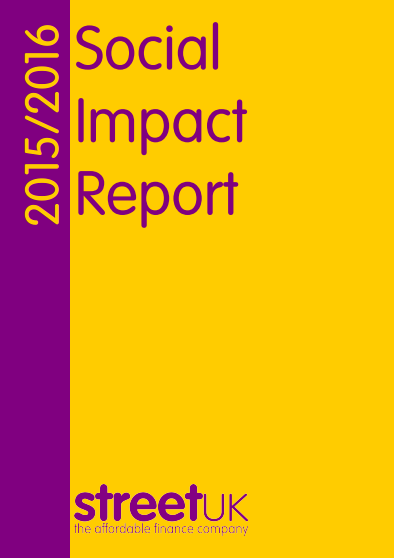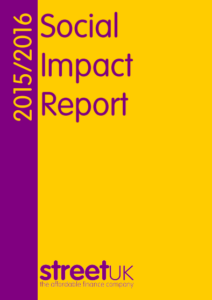Reports Database:
Street UK Social Impact Report 2015/2016


• Financial support is not restricted to having a solely financial impact in the borrower’s life. 79% of our surveyed clients agree that getting a loan from Street UK had more than just a financial impact. These include improvements to their level of stress, overall health, self-esteem and relationships with family and/or friends
• An individual’s previous credit history will not always be an accurate reflection of their ability to repay future loans. Over 70% of the people we lend to have a past default on their credit file, but over 90% of the loans we advance are repaid
• Many people are struggling to meet the everyday costs that those on higher incomes can take for granted. Our loans are most commonly used for home improvements, Christmas and holiday expenditure
• Short-term loans do not have to be expensive. They can be provided both online and on the high street for reasonable interest rates that cover the costs and associated risk of lending. Our online APR of 201% and our in-branch APR of 95% continue to under-cut other high-cost lenders
• Ethical lending can be sustainable if additional services are offered by finance companies. Our back office services business contribute to the Street UK Group’s overall sustainability by helping deliver scale economies and subisidising the cost of senior management, back office admnistration and our IT infrastructure
• Given these findings, it is necessary to protect those who are most vulnerable in society and to provide low income households with access to affordable finance without the risk of them falling into unmanageable volumes of debt”
